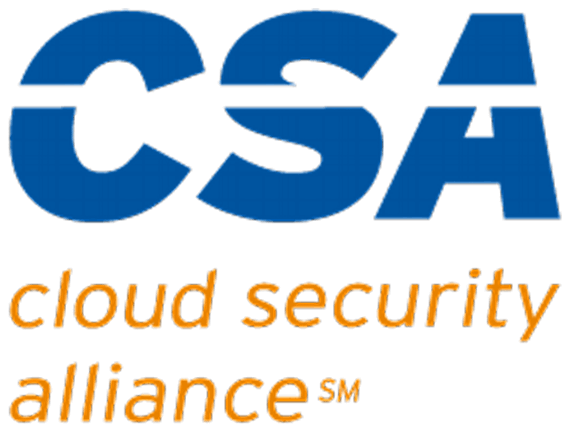IT compliance is a critical concern for small businesses. Compliance ensures that your business meets legal standards and protects sensitive data, safeguarding your organization’s reputation and building trust with clients and partners. Without proper compliance measures, your business risks facing significant fines, legal issues, and data breaches. Small businesses must prioritize IT compliance just as much as larger corporations.

In this article, we will explore the essential areas of IT compliance that every small business should focus on. We will define what IT compliance means in practice and delve into the key components involved. You will learn about relevant regulations, risk management strategies, and effective methods for implementing best practices within your organization. Understanding these insights can proactively enhance your company’s compliance posture and operational efficiency. Continue reading to equip your business with the tools it needs to thrive in a compliant environment.
What is IT Compliance?
IT compliance refers to an organization’s IT management practices adhering to regulatory requirements, industry standards, and internal policies. It encompasses a wide range of activities aimed at ensuring that information technology systems operate within legal frameworks relevant to specific business sectors. For small businesses, achieving IT compliance is crucial as it protects sensitive data, enhances operational efficiency, and minimizes the risk of legal consequences stemming from non-compliance.
In the context of small businesses, several regulations often come into play. For instance, the General Data Protection Regulation (GDPR) mandates that companies collect and process personal data transparently and securely. This requirement could affect small e-commerce businesses that handle customer data frequently. Similarly, the Health Insurance Portability and Accountability Act (HIPAA) impacts healthcare providers by dictating how they manage patient information. Understanding these regulations allows small business owners to take appropriate actions toward compliance, thereby safeguarding their operations.
Non-compliance can have severe repercussions for small businesses. Violations can result in substantial financial penalties or lawsuits that can jeopardize a business’s future. Beyond monetary risks, failing to maintain compliance can damage a company’s reputation and erode customer trust—factors essential for sustained growth in competitive markets. Consequently, prioritizing IT compliance becomes not just a regulatory obligation but also a strategic advantage that positions a small business favorably within its industry.
Overall, being aware of what IT compliance entails sets the foundation for building robust organizational processes. Emphasizing security measures and staying informed about applicable regulations will empower small business owners to navigate the complexities of compliance more effectively. Taking proactive steps in this area reflects a commitment to responsible management and builds confidence among stakeholders in today’s digital landscape.
Critical Components of IT Compliance
To achieve IT compliance, small businesses must develop comprehensive security policies and procedures. These documents should outline how to protect sensitive data and ensure effective incident response. For instance, a company might implement a policy requiring two-factor authentication for all employee accounts. This simple measure significantly reduces the risk of unauthorized access while demonstrating a commitment to safeguarding information.
Data protection and privacy measures are vital components as well. Small businesses often handle personal data, so compliance with regulations like GDPR or CCPA is essential. Companies can establish data handling and storage protocols, ensuring they collect only necessary information and store it securely. An example includes using encryption for files containing customer data, ensuring this information remains protected even if accessed by unauthorized parties.
Effective risk management strategies are also crucial for IT compliance. Identifying potential threats to business operations allows companies to allocate resources effectively and prioritize their compliance efforts. For example, conducting a risk assessment helps identify gaps in existing security measures, enabling the organization to address vulnerabilities before they lead to breaches or regulatory issues. By continuously monitoring risks and adjusting strategies accordingly, businesses not only enhance their compliance but also fortify their overall security posture.
In summary, small businesses must focus on developing solid security policies, implementing robust data protection strategies, and maintaining effective risk management practices. Each of these components plays an essential role in achieving IT compliance while fostering a culture of accountability among employees that can ultimately safeguard the business’s future.
Understanding Industry Regulations
Industry regulations play a vital role in establishing standards for compliance across various sectors. For example, the General Data Protection Regulation (GDPR) governs how organizations handle personal data for individuals within the European Union. This regulation affects small businesses that may collect or process such information, requiring them to implement strict data protection measures. Similarly, the Health Insurance Portability and Accountability Act (HIPAA) stipulates requirements related to healthcare information security. Businesses operating in the healthcare sector must ensure that they protect patients’ sensitive information from unauthorized access.
In addition to these well-known regulations, many industries face specific compliance requirements unique to their operations. The financial services industry has regulations like the Gramm-Leach-Bliley Act (GLBA), which mandates financial institutions explain their information-sharing practices and protect consumers’ private data. Small businesses in sectors such as manufacturing or energy may be subject to environmental compliance laws that dictate how they manage waste and respond to safety hazards. Understanding these regulatory frameworks is crucial for small business owners since non-compliance can lead to severe penalties.
The consequences of failing to adhere to industry regulations are significant and can have lasting repercussions on a small business’s reputation and financial stability. Non-compliance can result in hefty fines, legal action, or even loss of operational licenses. For instance, a company violating GDPR mandates could face fines of up to 4% of its annual global revenue or €20 million—whichever is higher. Furthermore, businesses risk losing client trust when they do not meet required standards, potentially impacting long-term profitability.
To mitigate these risks, small businesses must stay informed about applicable regulations affecting their operations and routinely assess their compliance efforts. Fostering awareness among employees regarding industry-specific requirements ensures everyone understands their responsibilities and contributes to maintaining adherence throughout the organization. This proactive approach helps avoid legal issues and positions your business favorably within your industry by demonstrating dedication to ethical practices.
Implementing IT Compliance Measures
To develop a robust compliance program, small businesses should start with a thorough assessment of their current practices. This involves identifying the relevant regulations that apply to their industry, such as GDPR for companies handling personal data or HIPAA for healthcare-related businesses. Once these requirements are established, create a detailed action plan outlining specific steps to meet each regulatory standard. Assign responsibilities within your team to ensure accountability in executing the plan. Regularly review and update this program to adapt to changes in regulations or business operations.
Utilizing the right tools and software can significantly enhance compliance efforts. Consider integrating cybersecurity solutions that offer real-time monitoring and encryption of sensitive data. Software platforms like compliance management systems can streamline documentation processes and simplify reporting required by regulatory bodies. Additionally, investing in vulnerability assessment tools will help identify potential risks before they escalate into serious issues. These technologies not only aid compliance but also foster an environment of security awareness among employees.
Training plays a crucial role in reinforcing compliance best practices across your organization. Begin by developing a comprehensive training curriculum tailor-made for your specific needs and regulations. Conduct regular workshops to educate employees about how their roles relate to IT compliance and the importance of adhering to set policies. Utilize engaging formats such as interactive discussions or scenario-based learning opportunities to reinforce key coverage areas. Make it clear that maintaining compliance is a shared responsibility; establishing regular knowledge refreshers ensures all staff members remain informed about updates and changing guidelines.
By taking decisive steps towards implementing IT compliance measures, small businesses protect themselves from legal repercussions and cultivate an environment conducive to trust and reliability among clients and partners alike.
Regular Audits and Assessments
Routine assessments are vital for maintaining IT compliance in small businesses. Regular audits help identify gaps in your processes and ensure that your organization adheres to established policies. By conducting these assessments, you can detect potential vulnerabilities before they lead to serious incidents. For instance, imagine a small healthcare provider facing a HIPAA violation due to insufficient access controls. A periodic audit could have revealed the failure early on, allowing them to rectify it and avoid costly penalties.
To conduct effective internal audits, first establish clear checklists aligned with your compliance requirements. These lists should cover various areas, such as security policies, data protection protocols, and response strategies during an incident. Assign roles within your team for different audit components to ensure accountability. This approach helps complete the audit systematically while engaging employees in the process. Use real-world scenarios to make auditors aware of situations they may face and prepare them with action plans for those scenarios.
Reviewing third-party vendors’ compliance status is equally crucial since these partnerships can expose your business to risks if not properly managed. Implement a formal vetting process before onboarding any vendor, ensuring they meet relevant compliance standards specific to your industry. Following this initial vetting, establish ongoing evaluations through regular compliance checks or performance reviews tailored towards their adherence to privacy regulations and security practices. Such diligence protects your business from potential liability arising from vendor-related missteps.
Engaging in routine audits and assessments reinforces compliance and cultivates a culture of accountability within your organization. When all team members recognize the significance of these evaluations, they’ll be more likely to prioritize adherence over time. As regulations evolve, committing to consistent review practices prepares small businesses for today’s and future changes in the compliance landscape.
Staying Updated with Changes in Regulations
Small businesses must stay informed about evolving regulations to maintain IT compliance. Numerous resources can help track these changes effectively. Industry-specific websites and newsletters provide regular updates on new laws affecting your business. Organizations such as the International Association for Privacy Professionals (IAPP) offer valuable insights and resources tailored to compliance needs.
Creating an internal process for adapting to new laws is crucial. Establish a designated compliance team responsible for monitoring regulatory updates. This team should regularly review incoming information and assess its relevance to your operations. Consider adopting a compliance calendar that outlines key deadlines and milestones related to regulatory requirements. This proactive approach ensures that you are always prepared for upcoming changes and can adjust your policies promptly.
Engaging with industry experts can significantly enhance your understanding of compliance practices. Attend seminars, webinars, or conferences on IT compliance topics within your sector. Networking with professionals specializing in regulatory issues can provide firsthand insights into emerging trends and best practices. Furthermore, consider joining industry associations where members effectively share resources and experiences related to managing compliance challenges.
In conclusion, staying updated on regulatory changes requires ongoing effort and engagement with external resources. By establishing an internal process for monitoring developments and connecting with industry experts, your business will be better equipped to navigate the complexities of IT compliance successfully.
Building a Compliance Culture within Your Organization
Creating a compliance culture is essential for ensuring that all employees understand and prioritize IT compliance in their daily activities. Encouraging staff to adopt a proactive approach to compliance transforms it from a checklist task into an integral part of your organization’s operations. For example, consider implementing regular workshops or informational sessions focused on data protection and security protocols. These sessions not only educate employees on policies but also motivate them to actively participate in maintaining compliance.
Leadership plays a critical role in promoting this culture. When management prioritizes IT compliance, it sets the tone for the entire organization. Leaders should clearly communicate the importance of adhering to regulations and demonstrate commitment through their actions. For instance, managers can share examples of compliance successes or failures within the industry, illustrating how these events affect business integrity and customer trust. Regular updates from leadership about compliance initiatives reinforce its significance while fostering an environment where questions and discussions are encouraged.
Fostering accountability at all levels is crucial to solidifying a strong compliance culture. Establishing clear roles and responsibilities ensures everyone knows their part in maintaining IT compliance. One effective technique is creating designated “compliance champions” within teams who will serve as points of contact for any regulatory queries or issues. Additionally, implementing performance metrics related to compliance can hold team members accountable while rewarding those who adhere effectively to policies and procedures.
Small businesses can mitigate risks associated with data breaches or regulatory penalties by instilling a deeply rooted compliance mindset throughout their organization. This proactive stance not only enhances operational efficiency but also builds trust with customers and stakeholders alike, ultimately leading to sustainable growth in today’s competitive landscape.
Benefits of Being IT Compliant
Being IT compliant offers numerous advantages that directly impact the success and sustainability of small businesses. One of the most significant benefits is enhancing trust with customers and partners. When a company demonstrates its commitment to maintaining compliance with industry regulations, it reassures stakeholders that their data is secure and treated responsibly. For instance, a small e-commerce retailer that complies with payment card industry standards not only mitigates security risks but also garners customer loyalty. Customers are more likely to transact when they know their sensitive information is protected.
Furthermore, compliance reduces legal risks and potential fines. Regulatory bodies impose heavy penalties for non-compliance; even small businesses can face financial strains from unexpected fines. A healthcare provider failing to adhere to HIPAA regulations could incur substantial costs due to breaches or lapses in data handling procedures. By prioritizing IT compliance, businesses shield themselves from such liabilities while safeguarding their reputation in the marketplace.
Additionally, being IT compliant can improve overall operational efficiency within a company. Clear security policies and data management strategies streamline processes and promote consistency across departments. For example, an IT compliance framework ensures that all employees follow standardized data access and sharing protocols, reducing confusion and minimizing errors. This structured approach allows teams to focus on driving business growth rather than navigating through compliance-related challenges.
Businesses reaping these benefits understand that effective compliance goes beyond meeting regulatory requirements; it creates a robust foundation for long-term success. Small organizations position themselves for sustainable growth in an increasingly competitive landscape by establishing trust, mitigating risks, and enhancing operational efficiencies.
Final Thoughts on IT Compliance
IT compliance is crucial for small businesses. It protects sensitive data, ensures a smooth operation, and fosters trust with customers and partners. A strong compliance program mitigates legal risks and enhances your company’s reputation. By prioritizing compliance, you lay a solid foundation for future growth.
Start assessing your company’s compliance status today. Review your current policies, conduct internal audits, and encourage staff involvement. Taking these steps will position your business to navigate regulatory challenges effectively and remain competitive in an ever-evolving landscape.




